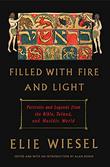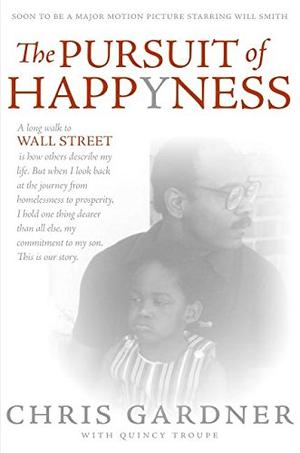HOW TO COOK YOUR DAUGHTER
GROWING UP IN A WORLD WHERE NOTHING WAS SACRED
by Jessica Hendra with Blake Morrison ‧ RELEASE DATE: Oct. 4, 2005
A polished and touching piece of work.
Tony Hendra’s daughter explains why she went public with the story of his incestuous sexual abuse.
Tony was one of the guiding lights of the National Lampoon during its glory days in the 1970s. In his bestselling memoir, Father Joe (2004), he wrote in very vague terms of his “misplaced sexual guilt.” Reading rave reviews that commended Tony for his supposed honesty, his daughter Jessica was shocked. At no point in the book, she saw, did he acknowledge the times that he forced her to commit incest. She decided to finally talk about her secret, in a public way that prompted an investigation by the New York Times. Her excellent memoir starts at this shocking moment, then winds back to tell the story of her life with Tony in a clipped, naturalistic voice. A British comedian who had once performed with John Cleese, Tony moved to L.A. to work in television, but never got a big break. Jessica was six years old in 1971 when the family relocated to New Jersey to further her father’s career. Not long after that, the first abuse happened, quickly followed by publication in the Lampoon of Tony’s disturbing and purportedly funny piece that gives Jessica’s memoir its title. (As depicted here, much of Tony’s “humorous” writing seems more like an attempt to rub people’s faces in his own emotional problems.) In gripping, straightforward prose, Jessica depicts her childhood among frenetically drug-fueled and rage-prone comics like John Belushi and Saturday Night Live writer Michael O’Donoghue. She lays out in an unadorned fashion her drift into self-hatred and anorexia, as well as Tony’s increasing megalomania, sexual obsessions and drug consumption. It’s hard not to see him as a monster—a label that Jessica assiduously avoids in her uncommonly fair and evenhanded memoir.
A polished and touching piece of work.Pub Date: Oct. 4, 2005
ISBN: 0-06-082099-3
Page Count: 288
Publisher: N/A
Review Posted Online: May 19, 2010
Kirkus Reviews Issue: Aug. 1, 2005
Share your opinion of this book
More by Jennifer Steinhauer
-
-
BOOK REVIEW
-
NIGHT
by Elie Wiesel & translated by Marion Wiesel ‧ RELEASE DATE: Jan. 16, 2006
The author's youthfulness helps to assure the inevitable comparison with the Anne Frank diary although over and above the...
Elie Wiesel spent his early years in a small Transylvanian town as one of four children.
He was the only one of the family to survive what Francois Maurois, in his introduction, calls the "human holocaust" of the persecution of the Jews, which began with the restrictions, the singularization of the yellow star, the enclosure within the ghetto, and went on to the mass deportations to the ovens of Auschwitz and Buchenwald. There are unforgettable and horrifying scenes here in this spare and sombre memoir of this experience of the hanging of a child, of his first farewell with his father who leaves him an inheritance of a knife and a spoon, and of his last goodbye at Buchenwald his father's corpse is already cold let alone the long months of survival under unconscionable conditions.
Pub Date: Jan. 16, 2006
ISBN: 0374500010
Page Count: 120
Publisher: Hill & Wang
Review Posted Online: Oct. 7, 2011
Kirkus Reviews Issue: Jan. 15, 2006
Share your opinion of this book
More by Elie Wiesel
-
-
BOOK REVIEW
by Elie Wiesel ; edited by Alan Rosen
-
-
-
BOOK REVIEW
by Elie Wiesel ; illustrated by Mark Podwal
-
-
-
BOOK REVIEW
by Elie Wiesel ; translated by Marion Wiesel
-
THE PURSUIT OF HAPPYNESS
FROM MEAN STREETS TO WALL STREET
by Chris Gardner with Quincy Troupe ‧ RELEASE DATE: June 1, 2006
Well-told and admonitory.
Young-rags-to-mature-riches memoir by broker and motivational speaker Gardner.
Born and raised in the Milwaukee ghetto, the author pulled himself up from considerable disadvantage. He was fatherless, and his adored mother wasn’t always around; once, as a child, he spied her at a family funeral accompanied by a prison guard. When beautiful, evanescent Moms was there, Chris also had to deal with Freddie “I ain’t your goddamn daddy!” Triplett, one of the meanest stepfathers in recent literature. Chris did “the dozens” with the homies, boosted a bit and in the course of youthful adventure was raped. His heroes were Miles Davis, James Brown and Muhammad Ali. Meanwhile, at the behest of Moms, he developed a fondness for reading. He joined the Navy and became a medic (preparing badass Marines for proctology), and a proficient lab technician. Moving up in San Francisco, married and then divorced, he sold medical supplies. He was recruited as a trainee at Dean Witter just around the time he became a homeless single father. All his belongings in a shopping cart, Gardner sometimes slept with his young son at the office (apparently undiscovered by the night cleaning crew). The two also frequently bedded down in a public restroom. After Gardner’s talents were finally appreciated by the firm of Bear Stearns, his American Dream became real. He got the cool duds, hot car and fine ladies so coveted from afar back in the day. He even had a meeting with Nelson Mandela. Through it all, he remained a prideful parent. His own no-daddy blues are gone now.
Well-told and admonitory.Pub Date: June 1, 2006
ISBN: 0-06-074486-3
Page Count: 320
Publisher: Amistad/HarperCollins
Review Posted Online: May 19, 2010
Kirkus Reviews Issue: March 15, 2006
Share your opinion of this book
© Copyright 2023 Kirkus Media LLC. All Rights Reserved.
Hey there, book lover.
We’re glad you found a book that interests you!
Please select an existing bookshelf
We can’t wait for you to join Kirkus!
Please sign up to continue.
It’s free and takes less than 10 seconds!
Already have an account? Log in.
OR
Trouble signing in? Retrieve credentials.
Almost there!
Welcome Back!
Sign in using your Kirkus account
OR
Trouble signing in? Retrieve credentials.
Need Help?
Contact us: 1-800-316-9361 or email customercare@kirkus.com
Don’t fret. We’ll find you.







